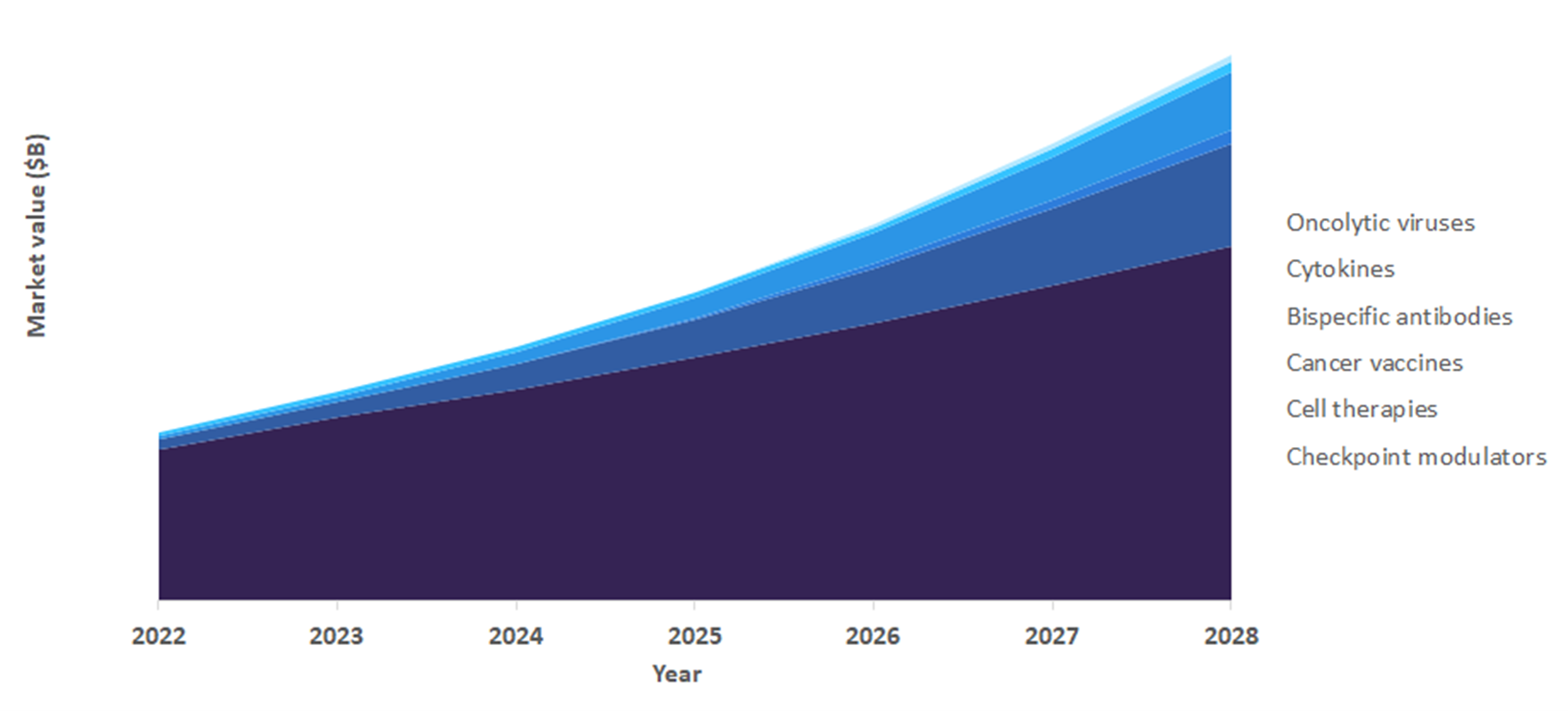In recent years, the field of oncology has witnessed a remarkable transformation with the advent of immuno-oncology theme analysis. This innovative approach harnesses the power of the body's immune system to target and destroy cancer cells, offering new hope to patients facing previously incurable diseases.
Introduction to Immuno-Oncology
Understanding the Basics Immuno-oncology, also known as cancer immunotherapy, involves using the body's own immune system to fight cancer. Unlike traditional treatments such as chemotherapy and radiation therapy, which directly target cancer cells, immuno-oncology aims to enhance the immune system's ability to recognize and eliminate cancer cells.
Importance of Immuno-Oncology in Cancer Treatment The discovery of immune checkpoint inhibitors, adoptive cell therapy, and cancer vaccines has revolutionized cancer care by offering more targeted and less toxic treatment options. These breakthroughs have led to significant improvements in patient outcomes and have paved the way for further advancements in the field.
Key Components of Immuno-Oncology
Immune Checkpoint Inhibitors One of the most promising developments in immuno-oncology is the use of immune checkpoint inhibitors, which block proteins that prevent the immune system from attacking cancer cells. Drugs like pembrolizumab and nivolumab have shown impressive results in various types of cancer, including melanoma, lung cancer, and bladder cancer.
Adoptive Cell Therapy Adoptive cell therapy involves engineering a patient's own immune cells to recognize and attack cancer cells. CAR-T cell therapy, in particular, has demonstrated remarkable efficacy in treating certain types of leukemia and lymphoma, leading to long-term remissions in some patients.
Cancer Vaccines Cancer vaccines work by stimulating the immune system to recognize and destroy cancer cells. While traditional vaccines prevent infectious diseases, cancer vaccines target specific antigens present on cancer cells, helping the immune system recognize them as foreign invaders.
Current Trends in Immuno-Oncology Research
Emerging Therapies Researchers are constantly exploring new approaches to immuno-oncology, including combination therapies that target multiple pathways simultaneously and novel immunotherapies that enhance the body's immune response against cancer.
Biomarkers for Patient Selection Identifying biomarkers that predict response to immunotherapy is a major focus of current research. Biomarker testing helps oncologists determine which patients are most likely to benefit from immuno-oncology treatments, leading to more personalized and effective care.
Challenges and Limitations
Autoimmune Side Effects While immuno-oncology has revolutionized cancer treatment, it can also lead to autoimmune side effects as the immune system attacks healthy tissues. Managing these side effects requires close monitoring and intervention to ensure patient safety.
Resistance to Treatment Some patients develop resistance to immuno-oncology treatments over time, limiting their effectiveness. Understanding the mechanisms of resistance and developing strategies to overcome them is a key area of ongoing research.
Future Directions in Immuno-Oncology
Combination Therapies Combining different immunotherapies or combining immunotherapy with other treatment modalities such as chemotherapy or targeted therapy holds promise for overcoming resistance and improving patient outcomes.
Personalized Medicine Approaches Advances in genomics and molecular profiling are enabling oncologists to tailor treatment plans to individual patients based on their unique genetic makeup and tumor characteristics, leading to more precise and effective therapies.
Impact of Immuno-Oncology on Cancer Patient Outcomes
Survival Rates Immuno-oncology has significantly improved survival rates for many cancer patients, with some experiencing long-term remissions and even cures. These outcomes represent a major breakthrough in cancer care and offer hope to patients and their families.
Quality of Life Improvements In addition to prolonging survival, immuno-oncology treatments often have fewer side effects than traditional therapies, leading to improvements in quality of life for cancer patients.
Case Studies and Success Stories
Notable Examples of Immuno-Oncology Success The stories of patients who have benefited from immuno-oncology treatments serve as powerful reminders of the transformative impact of these therapies. From stage IV melanoma patients achieving complete remission to children with leukemia experiencing miraculous recoveries, these success stories inspire hope and drive further research efforts.
Real-World Applications and Patient Experiences Beyond clinical trials, immuno-oncology is making a difference in the lives of patients around the world. From community oncology practices to academic medical centers, healthcare providers are witnessing firsthand the profound effects of immuno-oncology on patient outcomes.
Ethical Considerations
Access to Treatment Ensuring equitable access to immuno-oncology treatments is essential to maximizing their impact and addressing disparities in cancer care. Efforts to expand access must consider factors such as cost, geography, and healthcare infrastructure.
Affordability and Equity The high cost of some immuno-oncology treatments presents challenges for patients and healthcare systems alike. Addressing issues of affordability and promoting equity in access to care are critical priorities for policymakers, healthcare providers, and advocacy organizations.
For more insights on the immuno-oncology market forecast, download a free report sample

